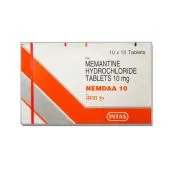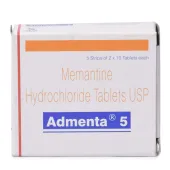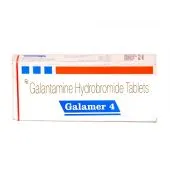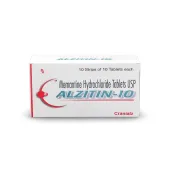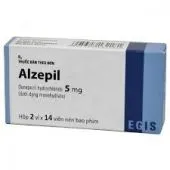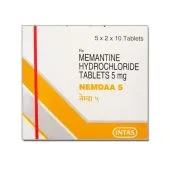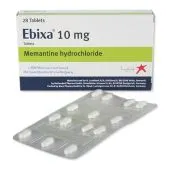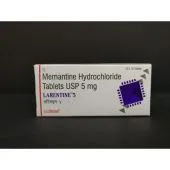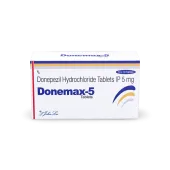Alzheimers

Alzheimer's Disease
Alzheimer's disease is a neurological disorder in which causes the death of brain cells and results into memory loss and cognitive decline. It is diagnosed in about 70% cases of dementia in United States, and is the most common type of dementia.
Death of brain cells causes memory loss and cognitive decline.It is the most common type of dementia, accounting for 60 to 80 percent of cases of dementia in the United States.In 2013, 6.8 million people in the U.S. had been diagnosed with dementia. Of these, 5 million had a diagnosis of Alzheimer's. By 2050, the numbers are expected to double.
It happens when plaques containing beta amyloid form in the brain. As symptoms worsen, it becomes harder for people to remember recent events, to reason, and to recognize people they know.At first, symptoms are mild, but they become more severe over time.
Reason Of Alzheimer's Disease
Although the causes of Alzheimer's aren't yet fully understood,Alzheimer's disease is caused by a combination of genetic, lifestyle and environmental factors that affect the brain over time.
-
aging
-
a family history of Alzheimer's
-
carrying certain genes
-
undergoing severe or repeated traumatic brain injuries (TBI)
-
exposure to some environmental contaminants, such as toxic metals, pesticide, and industrial chemicals
Symptoms Of Alzheimer's Disease
-
repetitive questions or conversations
-
forgetting events or appointments
-
getting lost on a familiar route
-
misplacing personal belongings
-
inability to manage finances
-
poor decision-making ability
-
poor understanding of safety risks
-
inability to plan complex or sequential activities
-
inability to recognize faces or common objects or to find objects in direct view
-
inability to use simple tools, for example, to orient clothing to the body
-
difficulty thinking of common words while speaking, hesitations
-
out-of-character mood changes, including agitation, apathy, social withdrawal or a lack of interest, motivation, or initiative
-
speech, spelling, and writing errors
-
loss of empathy
-
compulsive, obsessive, or socially unacceptable behavior
-
a marked worsening of the individual's normal level of cognition in particular areas
-
a gradual onset, over months to years, rather than hours or days
Preventions Of Alzheimer's Disease
-
Better your brain
-
Eat more fruits and veggies
-
Reach for berries
-
Increase omega-3 fatty acids
-
Take folic acid supplements
-
Drink wine with dinner
-
Choose Mediterranean style diet
-
Control your blood pressure
-
Invest time and effort in healthy relationships
Common Medications
Diagnosis
There's no specific test today that confirms you have Alzheimer's disease. Your doctor will make a judgment about whether Alzheimer's is the most likely cause of your symptoms based on the information you provide and results of various tests that can help clarify the diagnosis.Your doctor will perform a physical exam, and is likely to check your overall neurological health by testing your:
-
Reflexes
-
Muscle tone and strength
-
Ability to get up from a chair and walk across the room
-
Sense of sight and hearing
-
Coordination
-
Balance
-
Brain-imaging technologies including Magnetic resonance imaging (MRI), Computerized tomography (CT), Positron emission tomography (PET) scans.
Myths/Facts
Myth: Memory loss is a natural part of aging.
Fact: As people age, it's normal to have occasional memory problems, such as forgetting the name of a person you've recently met. However, Alzheimer's is more than occasional memory loss. It's a disease that causes brain cells to malfunction and ultimately die. When this happens, an individual may forget the name of a longtime friend or what roads to take to return to a home they've lived in for decades. Sometimes the problems are caused by medication side effects, vitamin deficiencies or other conditions and can be reversed with treatment. The memory and thinking problems may also be caused by another type of dementia.
Myth: Alzheimer’s disease is not fatal.
Fact: Alzheimer's disease has no survivors. It destroys brain cells and causes memory changes, erratic behaviors and loss of body functions. It slowly and painfully takes away a person's identity, ability to connect with others, think, eat, talk, walk and find his or her way home.
Myth: Only older people can get Alzheimer's
Fact: Alzheimer's can strike people in their 30s, 40s and even 50s. This is called younger-onset Alzheimer's. It is estimated that there are more than 5 million people living with Alzheimer’s disease in the United States. This includes 5.2 million people age 65 and older and 200,000 people younger than age 65 with younger-onset Alzheimer’s disease.
Myth: Drinking out of aluminum cans or cooking in aluminum pots and pans can lead to Alzheimer’s disease.
Fact: During the 1960s and 1970s, aluminum emerged as a possible suspect in Alzheimer’s. This suspicion led to concern about exposure to aluminum through everyday sources such as pots and pans, beverage cans, antacids and antiperspirants. Since then, studies have failed to confirm any role for aluminum in causing Alzheimer’s.
Expected Side Effects Of Treatment
Common side effects include the following:
-
Dizziness
-
Nausea
-
Vomiting
-
Diarrhea
-
Loss of appetite
-
Abdominal pain
-
Salivation
Contact the doctor immediately if the following occur:
-
Fainting
-
Abnormal heart rate
-
Vomiting blood or substance that looks like coffee grounds
-
Seizures
-
Severe stomach pain
People going through any of the problems listed below should get themselves treated in extra caution-
-
History of seizures
-
Asthma or chronic obstructive pulmonary disease (COPD)
-
Abnormal heart rhythm
-
Active peptic ulcer disease
-
Anesthesia for surgery
-
Liver disease (tacrine)
-
Parkinson's disease
-
High or low blood pressure


